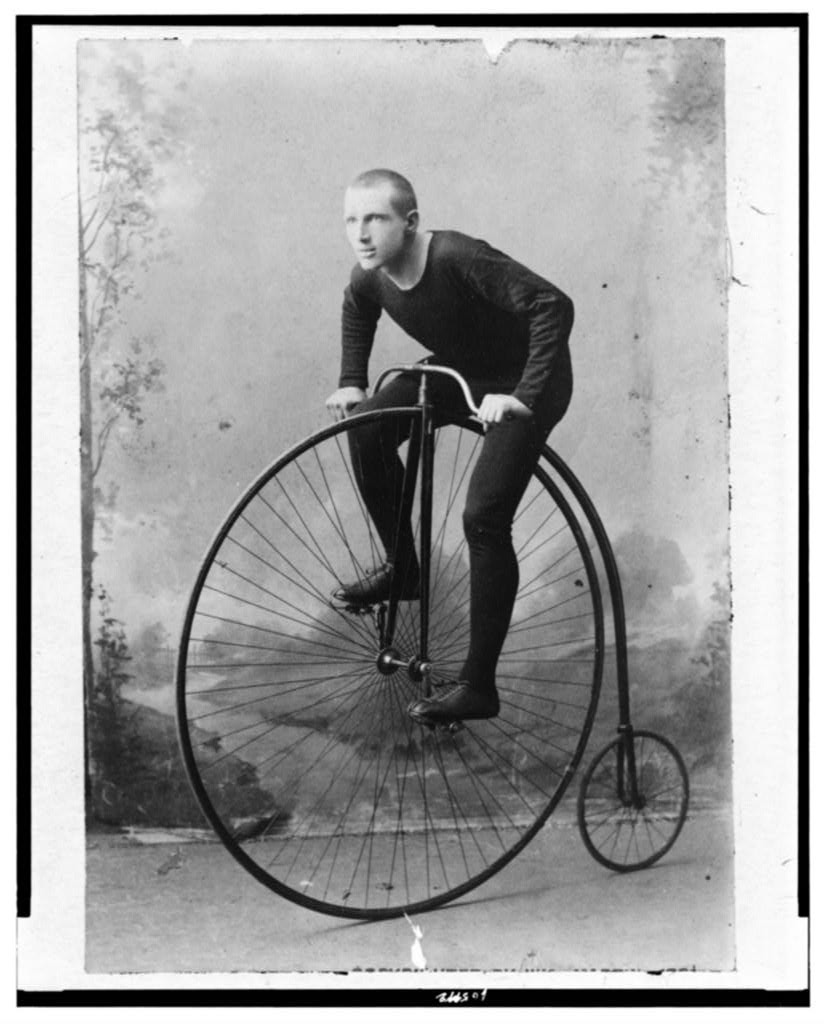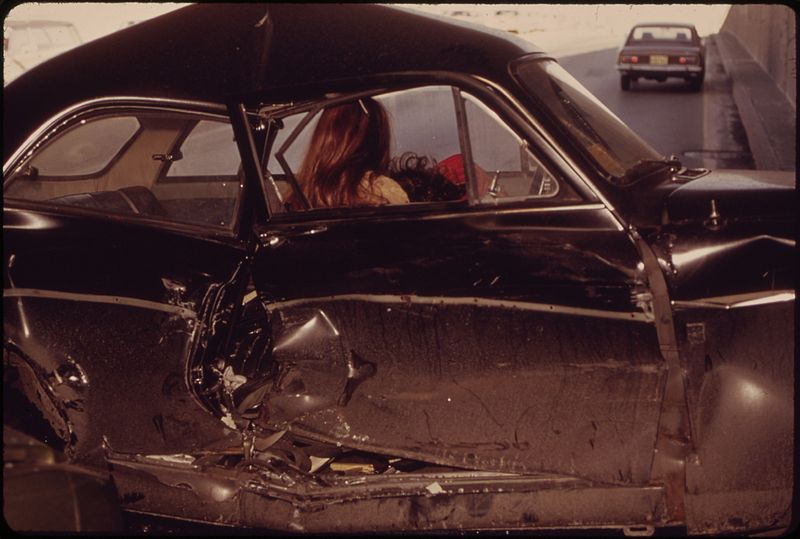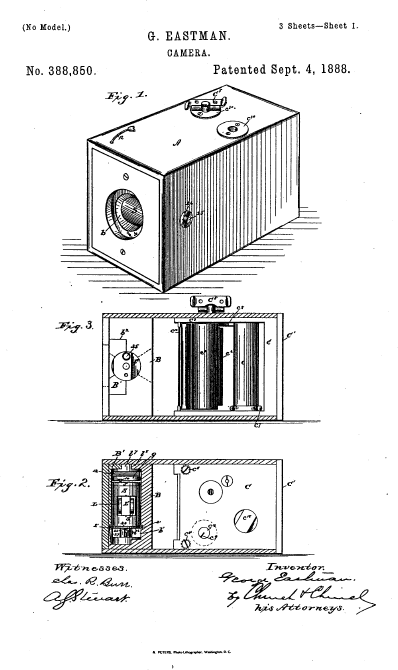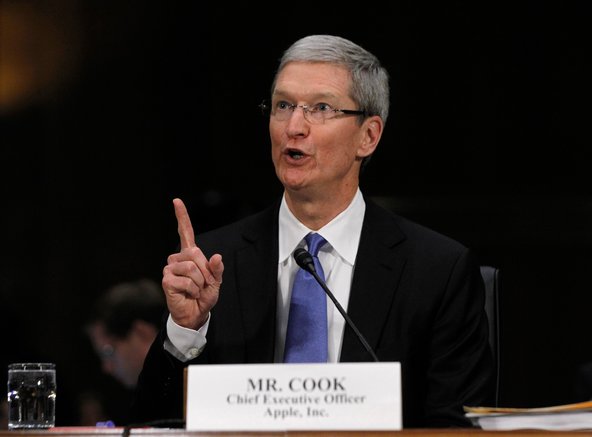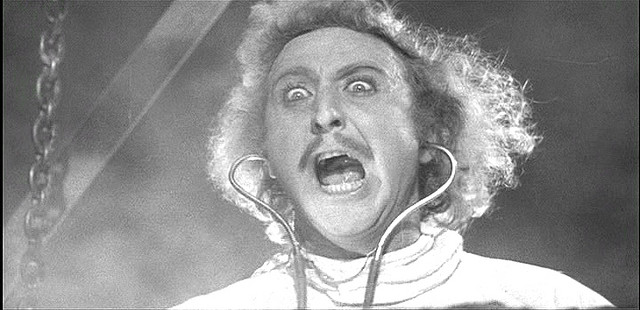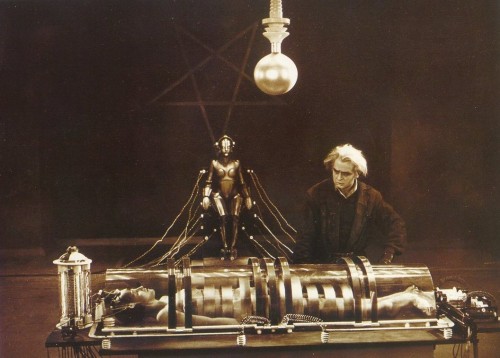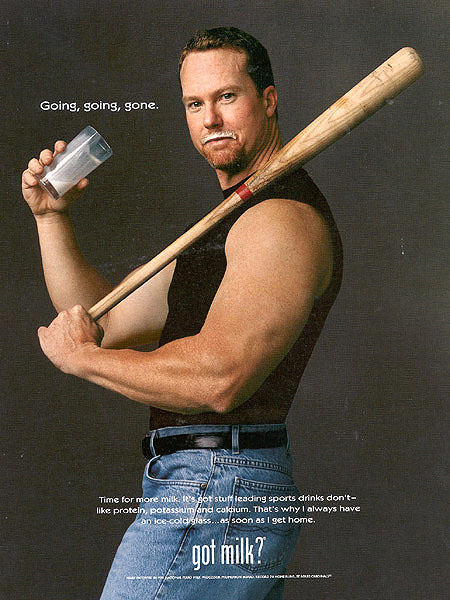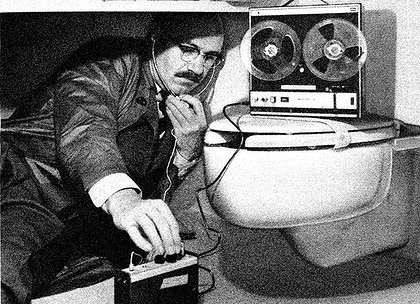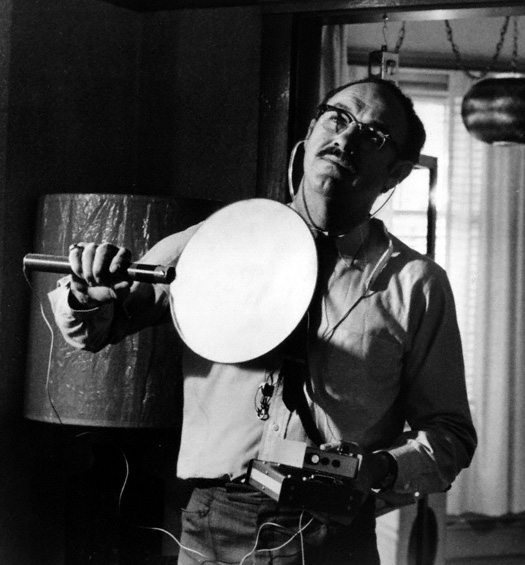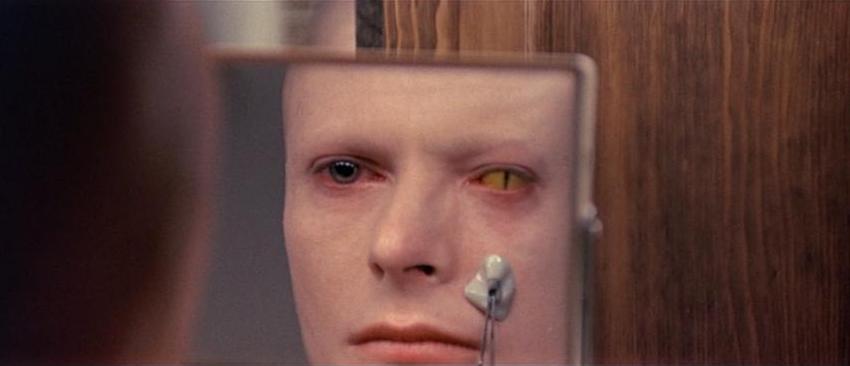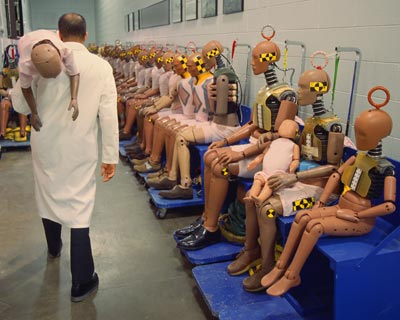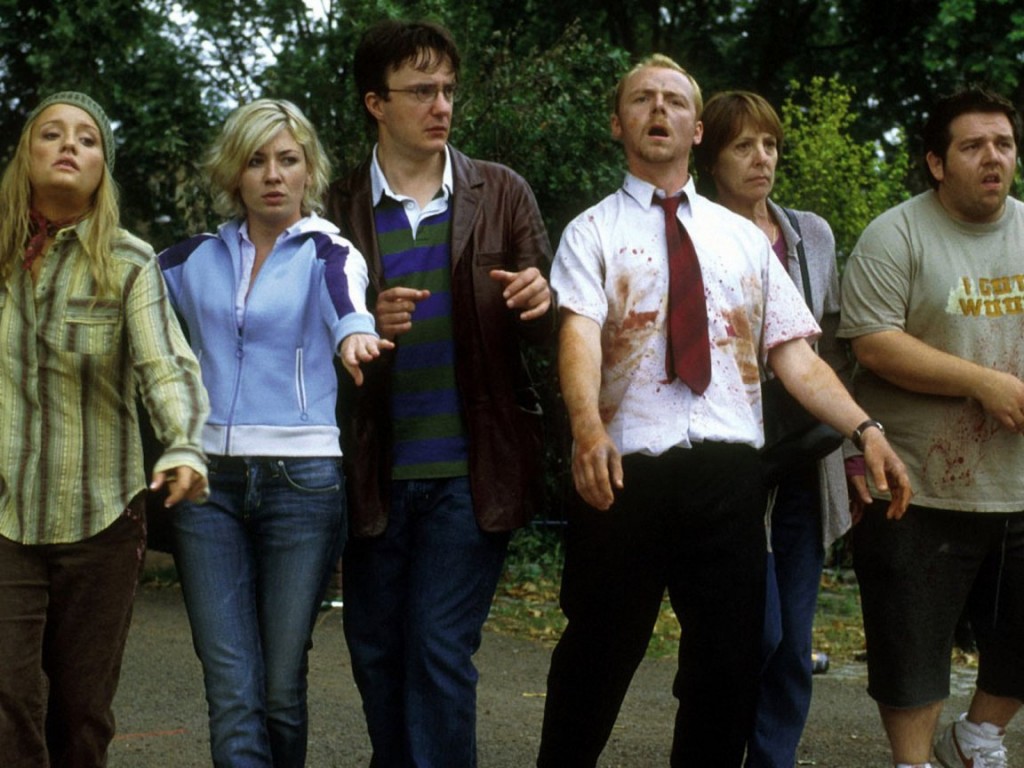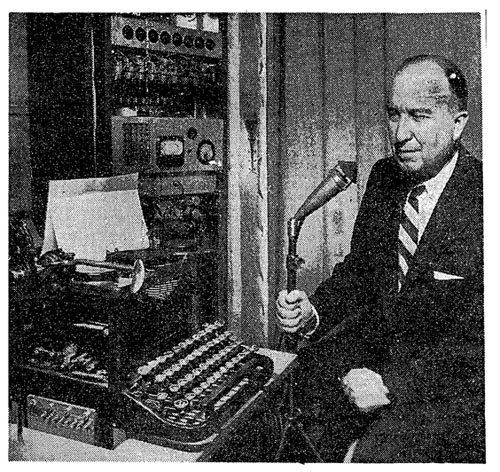A roboticized underground bicycle parking lot. In Japan, of course.
You are currently browsing the archive for the Science/Tech category.
One thing lost in the NSA scandal is that while government spying on U.S. citizens may be a permanent part of life, the opposite is equally true: our government can never be sure anymore that it’s operating in secrecy. To some extent, we live in public now. Whether it’s Edward Snowden telling us what’s already obvious, or disclosures that mean something, life is more complicated and transparent because of the tech tools we’ve created, because so much information is out there. A tiny part of it may be dangerous–even treason—but the great majority–like Snowden’s, will not. But it will occur, it is a part of the foundation now. You can prosecute this person or make a law to limit that entity, but that’s not going to change anyone’s behavior. The tools are there and so is the will to utilize them, whether we’re talking about government agencies or the average person.
But the ceding of privacy by the average American is about something else–a lack of proportion, the fear of the terrible death by terrorism as opposed to a relatively mundane one. It’s about not wanting to experience a loss of control. An analogy: People in the U.S. fear traveling by airplanes far more than by auto, yet there hasn’t been an air fatality from a major airline in the country in more than four years. Check our highway death statistics during the same time frame. From Conor Friedersdorf in the Atlantic:
“Measured in lives lost, during an interval that includes the biggest terrorist attack in American history, guns posed a threat to American lives that was more than 100 times greater than the threat of terrorism. Over the same interval, drunk driving threatened our safety 50 times more than terrorism.
Those aren’t the only threats many times more deadly than terrorism, either.
The CDC estimates that food poisoning kills roughly 3,000 Americans every year. Every year, food-borne illness takes as many lives in the U.S. as were lost during the high outlier of terrorism deaths. It’s a killer more deadly than terrorism. Should we cede a significant amount of liberty to fight it?
Government officials, much of the media, and most American citizens talk about terrorism as if they’re totally oblivious to this context — as if it is different than all other threats we face, in both kind and degree. Since The Guardian and other news outlets started revealing the scope of the surveillance state last week, numerous commentators and government officials, including President Obama himself, have talked about the need to properly ‘balance’ liberty and security.
The U.S. should certainly try to prevent terrorist attacks, and there is a lot that government can and has done since 9/11 to improve security in ways that are totally unobjectionable. But it is not rational to give up massive amounts of privacy and liberty to stay marginally safer from a threat that, however scary, endangers the average American far less than his or her daily commute.”
Tags: Conor Friedersdorf, Edward Snowden
I don’t think former NSA employee Edward Snowden did anything particularly heroic in leaking documents that told every American what we should already know: We gave our government the power to spy on us, and it’s exercising that authority. Surprisingly enough, polls show most Americans actually approve of such governmental snooping.
But as Amy Davidson pointed out yesterday at the New Yorker blog, David Brooks’ take on Snowden’s actions in his New York Times column is shockingly tone-deaf. The piece’s soft-headed sociology and demeaning character study are perplexing enough, but what’s really outrageous is the idea that Snowden should have felt too indebted to his employers who improved his life materially to speak out about what he felt was wrongdoing.
This part: “He betrayed his employers. Booz Allen and the C.I.A. took a high-school dropout and offered him positions with lavish salaries. He is violating the honor codes of all those who enabled him to rise.”
Yeah, community college slob, know your place. Be grateful to your betters in the U.S. hierarchy. And, yes, you could just as easily apply Brooks’ logic to Gitmo whistleblowers.
Although this paragraph may be worse: “He betrayed the Constitution. The founders did not create the United States so that some solitary 29-year-old could make unilateral decisions about what should be exposed.”
Does Brooks feel the same way about the rights of solitary gun owners? Free speech is messy and inconvenient, but it’s of paramount importance, regardless if we agree with what’s being said or if personally approve of the education and financial standing of the speaker. Disagree vociferously, sure, but don’t preempt disagreement.•
Tags: Amy Davidson, David Brooks, Edward Snowden
From “Kodak’s Problem Child,” Kenny Suleimanagich’s Medium article about how George Eastman’s marvelous company was laid low by its inability to capitalize on its own innovation:
“Chemistry was work that Eastman himself, with one foot still planted in the nineteenth century, well understood. Over the span of about a decade, the Kodak founder invented the first practical roll film and then built the first cameras that could reliably use it. Never again would photography be a cumbersome process, the domain of professionals only.
In his original patent, he wrote that his improvements applied to ‘that class of photographic apparatus known as ‘detective cameras,’’ — concealed and disguised devices, made possible by a new wave of miniaturization, that were used mostly for a lowbrow entertainment: snapping pictures of people unaware. Cameras equipped with single-use chemical plates were hidden in opera glasses, umbrellas, and other everyday objects, and sharing the surreptitious, random, and sometimes compromising photos that resulted became a popular fad.
Eastman, in other words, was obsessively tinkering with what many people at the time would have considered a cheap novelty or a toy. Like Netflix in its early days, Kodak relied on the U.S. Postal Service: Customers sent their spent cameras to Rochester, where the film was removed, processed, and cut into frames; the resulting negatives and prints, along with the camera, reloaded with a fresh roll of film, were returned to the sender. Suddenly it was easy for anyone to take lots of pictures, and Eastman’s new business became a juggernaut almost overnight.
About ninety years later, another tinkerer in Kodak labs would create an integrated circuit that turned light waves into digital images. It too would be labeled a toy by the few people who saw it. It too would eventually launch a huge new business all but overnight. But this time, Kodak wouldn’t be part of it.”
Tags: Kenny Suleimanagich
In his essay for the Atlantic about Silicon Valley politics and tax policy, Kentaro Toyama questions the very limits of meritocracy:
“What’s wrong with a world in which greater intellects hold more power and win greater rewards? At least two things: First, intelligence and productivity are important, but they’re secondary virtues, compared with goodness and sincerity. The road to hell may be paved with good intentions marred by stupidity, but bad intentions backed by brains are hypersonic jet transport to fire and brimstone. The difference was on full display when Cook testified. The Apple CEO is undoubtedly very smart, and on the Senate panel, he revealed a razor sharp social intelligence to boot. Yet, the words that came out of his mouth must rank with ‘we didn’t know tobacco was bad for you’ in their insincerity: ‘We not only comply with the laws, but we comply with the spirit of the laws. We don’t depend on tax gimmicks.’ Really?
The second is that a meritocracy can be just as bad as any other ‘-ocracy’ in reinforcing inequalities unless each generation ensures a fair distribution of merit. Unfortunately, American institutions for nurturing merit — such as its system of formal education — are only becoming less and less egalitarian. Public school funding remains linked to local property taxes, causing cumulative disadvantage; private schooling is becoming the default for rich, ‘meritocratic’ parents, who then care less about what happens in the public system; college is increasingly unaffordable for even the firmly middle class.”
Tags: Kentaro Toyama
“In the sun, I feel as one…married…buried,” sang the doomed poet, and we’re not feeling so well ourselves. In the wake of Hurricane Sandy, what isn’t possible? From Dana Rubinstein at Capital, a report about the awful potential of climate change in NYC:
“By the 2050s, the the number of 90-plus degree days could triple, and that could pose risks not only to New Yorkers’ lives, but also to the infrastructure that supports them.
‘Due to the urban heat-island effect, the temperature could be as much as seven degrees higher than it is in areas just around the city,’ said Cas Holloway, Bloomberg’s deputy mayor for operations, who based his remarks on a panel of climate change academics convened by the city.
Images of hazy skies and a straphanger mopping his brow appeared on a screen to his left.
‘It becomes basically like being in an oven beneath the street, and it makes our infrastructure extremely vulnerable.'”
Tags: Cas Holloway, Dana Rubinstein
From “Robot Evolution,” Emily Monosson’s Aeon essay, which concerns the shock of the new and the unpredictable emergent behaviors that can accompany such a thing:
“In a laboratory tucked away in a corner of the Cornell University campus, Hod Lipson’s robots are evolving. He has already produced a self-aware robot that is able to gather information about itself as it learns to walk. Like a Toy Story character, it sits in a cubby surrounded by other former laboratory stars. There’s a set of modular cubes, looking like a cross between children’s blocks and the model cartilage one might see at the orthopaedist’s – this particular contraption enjoyed the spotlight in 2005 as one of the world’s first self-replicating robots. And there are cubbies full of odd-shaped plastic sculptures, including some chess pieces that are products of the lab’s 3D printer.
In 2006, Lipson’s Creative Machines Lab pioneered the Fab@home, a low-cost build-your-own 3D printer, available to anyone with internet access. For around $2,500 and some tech know-how, you could make a desktop machine and begin printing three-dimensional objects: an iPod case made of silicon, flowers from icing, a dolls’ house out of spray-cheese. Within a year, the Fab@home site had received 17 million hits and won a 2007 Breakthrough of the Year award fromPopular Mechanics. But really, the printer was just a side project: it was a way to fabricate all the bits necessary for robotic self-replication. The robots and the 3D printer-pieces populating the cubbies are like fossils tracing the evolutionary history of a new kind of organism. ‘I want to evolve something that is life,’ Lipson told me, ‘out of plastic and wires and inanimate materials.’
Upon first meeting, Lipson comes off like a cross between Seth Rogen and Gene Wilder’s Young Frankenstein (minus the wild blond hair). He exudes a youthful kind of curiosity. You can’t miss his passionate desire to understand what makes life tick. And yet, as he seeks to create a self-assembling, self-aware machine that can walk right out of his laboratory, Lipson is aware of the risks. In the corner of his office is a box of new copies of Out of Control by Kevin Kelly. First published in 1994 when Kelly was executive editor of Wired magazine, the book contemplates the seemingly imminent merging of the biological and technological realms — ‘the born and the made’ — and the inevitable unpredictability of such an event. ‘When someone wants to do a PhD in this lab, I give them this book before they commit,’ Lipson told me. ‘As much as we are control freaks when it comes to engineering, where this is going toward is loss of control. The more we automate, the more we don’t know what’s going to come out of it.’”
Tags: Emily Monosson, Hod Lipson
Tags: Andrew McAfee
To follow up on what I posted earlier about the age of surveillance:
Let’s say it becomes obvious that quite a few major-league baseball players are using performance-enhancing drugs. Fans are outraged. They’re cheating, threatening the integrity of the game. But what if safe performance-enhancing drugs gradually become available to the general public. The average person can become stronger and healthier by taking such supplements. The fans themselves are “juiced,” so to speak, sitting in the stands. Would we be able to hold athletes to a standard that the rest of society isn’t held to?
Now consider this scenario: One part of our nation is conducting deep surveillance of citizens. People are outraged. They’re intruding, threatening our liberties. But what if such surveillance gradually became widespread in every other part of society? What if corporations, government, hackers and the average citizen were all doing it? What if new tools made it common? Would we be able to hold any single aspect of society (government, say) to a standard that the rest of society isn’t held to?
Whether we like it or not, once a thing become pervasive, it is tacitly accepted. Fighting it becomes as ridiculous as any other prohibition that runs counter to mass activity. We realize that the thing we supposedly fear is now the new normal.•
From Jeffrey Toobin’s post at the New Yorker blog about rogue NSA employee Edward Snowden, which counters the leaker-as-hero chorus:
“Edward Snowden, a twenty-nine-year-old former C.I.A. employee and current government contractor, has leaked news of National Security Agency programs that collect vast amounts of information about the telephone calls made by millions of Americans, as well as e-mails and other files of foreign targets and their American connections. For this, some, including my colleague John Cassidy, are hailing him as a hero and a whistle-blower. He is neither. He is, rather, a grandiose narcissist who deserves to be in prison.
Snowden provided information to the Washington Post and the Guardian, which also posted a video interview with him. In it, he describes himself as appalled by the government he served:
The N.S.A. has built an infrastructure that allows it to intercept almost everything. With this capability, the vast majority of human communications are automatically ingested without targeting. If I wanted to see your e-mails or your wife’s phone, all I have to do is use intercepts. I can get your e-mails, passwords, phone records, credit cards.
I don’t want to live in a society that does these sort of things… I do not want to live in a world where everything I do and say is recorded. That is not something I am willing to support or live under.
What, one wonders, did Snowden think the N.S.A. did? Any marginally attentive citizen, much less N.S.A. employee or contractor, knows that the entire mission of the agency is to intercept electronic communications. Perhaps he thought that the N.S.A. operated only outside the United States; in that case, he hadn’t been paying very close attention. In any event, Snowden decided that he does not ‘want to live in a society’ that intercepts private communications. His latter-day conversion is dubious.”
Tags: Edward Snowden, Jeffrey Toobin
From the New York Times, a look back at 1991’s Biosphere 2, that boondoggle, which was supposed to be an air-tight test run for space colonization. It ended up being something less.
Americans have apparently realized in just the last few days that the Patriot Act combined with tons of our information online means that spying is easier than ever–and probably legal. Hopefully, we’re a little more aware that 3D printers, with all the great things they can do, will also lead to some problems. Staples begins selling one this month. From Singularity Hub: “The latest sign of the 3D printer home invasion? Retail office supply chain, Staples, says they’ll sell the 3D Systems Cube 3D Printer online and in retail stores by the end of June.
The $1,300 Cube connects to your home PC over Wi-Fi, allowing it to access and print 3D digital templates in plastic. The printer can print shapes that fit inside a cube 5.5″ to a side. Printing cartridges come in 16 colors which, along with other accessories, may also be purchased at Staples.”
Two of the more perplexing entities in existence, Vice magazine and Sen. Rand Paul, met for a brief interview. The reporter, Grace Wyler, did a good job. An excerpt:
“Vice:
What do you think about the Obama administration’s decision to support the FBI’s push to make it easier to spy on the Internet?
Sen. Rand Paul:
My reaction is mostly disappointment. The one area where I liked President Obama was that I thought he would defend civil liberties. It turns out that he might care less for civil liberties than George Bush, and I think that’s disappointing.
It must be truly disappointing for those who truly are progressive on the left who believe in civil liberties, and it’s disappointing to those of us on the right who didn’t support him but thought, ‘Gosh, well, at least maybe he’ll support civil liberties.’
Vice:
It all seems kind of dystopian. Speaking of which, I hear you want to teach a class on the dystopian novel?
Sen. Rand Paul:
I’ve talked about it, but unfortunately I keep developing other projects that get in the way. I would like to do it someday. I think dystopian novels are a discussion of politics, and sort of what happens if you let a government accumulate too much power.
As I said in my filibuster, this presidential, or king, complex that both Republicans and Democrats get where they think, ‘Well, the power is not so bad, because I’m a good person and I won’t abuse that power.’ President Obama has said that with indefinite detention, he’s said ‘Oh, well I don’t intend to use that power.’ That’s not good enough, it’s like when Madison said: ‘If government were comprised of angels, we wouldn’t have to worry about how much power to give the government.’
The government is not comprised of angels. No one can be trusted. I think it was either Madison or Jefferson who said to always worry about any power you give to your government, because there should always be a certain level of distrust for anyone who seeks power. “
Tags: Grace Wyler, Rand Paul
I’m not a defeatist about all the problems of our world. I think, for instance, income inequality can be remedied, and we can achieve social progress in a number of areas. The demographics are on our side. But I’m not an optimist when it comes to controlling guns or ensuring privacy, areas where technology makes limitation almost impossible.
I’ve talked about guns before, so I’ll discuss privacy today.
Gawker‘s Hamilton Nolan always makes lots of good points in his posts. His latest, a piece about the surveillance state we find ourselves in, is no exception. We’re now a place where government, media and the odd hacker can watch us, can learn what we’re thinking. Nolan’s contention is that we can stop these intrusions. I don’t think that’s true.
9/11 and the Patriot Act hastened this world, made for an excellent excuse for its installation, but it was going to happen anyway. There are two reasons for that.
First of all, no one ever builds tools to not use them, and they only get cheaper and easier to use. Drones were the size of planes and then birds and soon fleas. Cameras are in our pockets–in our glasses–let alone attached to our streetlamps. We drop data everywhere we go–even when we’re sitting still. And a decentralized media is in everyone’s hands, which means many great things can happen but also that a virtual anarchy rules. And this new normal is already such a bedrock of our society that I don’t think it would be possible to turn back even if we wanted to.
And I don’t think we really want to.
That brings me to the second reason: People really, really want attention at any cost. It makes them feel appreciated and safe. I’ve been constantly surprised by the extent of this. Social networks and other information-extracting services are a reflection of our desire to be connected, to feel important. We’ve traded so much for it already, namely our privacy, because, we want to be noticed, we want to be watched over. It’s a scary world and everyone wants a brother, even if it’s Big Brother.
Perhaps that will change when a government overreach causes a scandal that has a very human face. But I doubt it. The widespread News Corp wrongdoing, with the face of a murdered child attached to it, hasn’t changed much. I think privacy as we knew it, from governmental or other intrusion, is over, like it or not.
The opening of Nolan’s post:
“Ever since 9/11, the American government has been busily constructing the most comprehensive surveillance state in this country’s history. This vast and invasive bureaucracy is too big to hide, but the public has done its part by politely ignoring it. No longer. Now is when we, the people, choose whether or not we will accept the end of privacy as we know it. If history is any indication, we will.
In the immediate aftermath of 9/11, the public’s consent was explicit: Do Whatever It Takes. As passions faded and the ‘War on Terror’ morphed into a quasi-permanent state of being, our consent became implicit. The public never asked for the surveillance state to stop. Over the past decade, journalists have periodically revealed details of the breadth of our government’s spying mechanism: the Washington Post the breathtaking size of the secret intelligence-industrial complex; Jane Mayer NSA whistleblowers who said that the agency was vacuuming up email and phone records from all Americans. These stories, meticulous though they were, made only a temporary splash. This week’s stories are different.
Over the past two days, two incredibly important stories about the U.S. government’s spying capabilities broke one after another. First, the story that the NSA is collecting the phone records of all Verizon Business Services customers—which may well include all Verizon users—on a daily, ongoing basis; and then, yesterday, the existence of the PRISM program, in which the NSA and the FBI tap directly into the data streams of the world’s biggest internet companies, allowing it to pull out virtually any and all communications data, allowing them to ‘watch your ideas form as you type.’ (The vague denials of the various internet companies likely hinge on the technical mechanisms of their cooperation, rather than on the existence of their cooperation itself.)
The great omniscient government spy looking over your shoulder is real. This is the type of spying program that makes conspiracy theorists sound mild in comparison. Even in the context of the wholesale erosion of the very concept of ‘civil liberties’ since 9/11, this is sobering stuff. We have consented, without our knowledge, to giving faceless, unaccountable government representatives access to everything we say and do.”
Tags: Hamilton Nolan
When you’re gambling large sums of money in a boom-or-bust business, the sky is always falling, and despite gigantic grosses, Hollywood has never looked more at its chandelier like a concussion-in-waiting. Today, technology can’t be controlled and global markets are now the dog pulling the leash. The cultural concerns go beyond film itself: If we have only blockbusters borne of comic books, what sort of ramifications does that have on the culture?
But those concerns are not unique to our time. The New York Review of Books just republished Gore Vidal’s epic two-part 1973 article, “The Ashes of Hollywood” (Pt. 1 + Pt. 2), which examined the effect Tinseltown’s so-called Golden Age had on the literature written by those weaned on it.
Vidal could not have foreseen parts of TV becoming so literate and personal as film grew into something behemoth and post-literate. Of course, Vidal probably would have had little kindness for contemporary television, either. He hated everything that wasn’t him or didn’t flatter him. The article’s opening:
“‘Shit has its own integrity.’ The Wise Hack at the Writers’ Table in the MGM commissary used regularly to affirm this axiom for the benefit of us alien integers from the world of Quality Lit. It was plain to him (if not to the front office) that since we had come to Hollywood only to make money, our pictures would entirely lack the one basic homely ingredient that spells boffo world-wide grosses. The Wise Hack was not far wrong. He knew that the sort of exuberant badness which so often achieves perfect popularity cannot be faked even though, as he was quick to admit, no one ever lost a penny underestimating the intelligence of the American public. He was cynical (so were we); yet he also truly believed that children in jeopardy always hooked an audience, that Lana Turner was convincing when she rejected the advances of Edmund Purdom in The Prodigal ‘because I’m a priestess of Baal,’ and he thought that Irving Thalberg was a genius of Leonardo proportion because he had made such tasteful ‘products’ as The Barretts of Wimpole Street and’ Marie Antoinette.
In my day at the Writers’ Table (mid-Fifties) television had shaken the industry and the shit-dispensers could now…well, flush their products into every home without having to worry about booking a theater. In desperation, the front office started hiring alien integers whose lack of reverence for the industry distressed the Wise Hack who daily lectured us as we sat at our long table eating the specialty of the studio, top-billed as the Louis B. Mayer Chicken Soup with Matzoh Balls (yes, invariably, the dumb starlet would ask, what do they do with the rest of the matzoh?). Christopher Isherwood and I sat on one side of the table; John O’Hara on the other. Aldous Huxley worked at home. Dorothy Parker drank at home.
The last time I saw her, Los Angeles had been on fire for three days. As I took a taxi from the studio, I asked the driver, ‘How’s the fire doing?’ ‘You mean,’ said the Hollywoodian, ‘the holocaust.’ The style, you see, must come as easily and naturally as that. I found Dorothy standing in front of her house, gazing at the smoky sky; in one hand she held a drink, in the other a comb which absently she was passing through her short straight hair. As I came toward her, she gave me a secret smile. ‘I am combing,’ she whispered, ‘Los Angeles out of my hair.’ But of course that was not possible. The ashes of Hollywood are still very much in our hair, as the ten bestsellers I have just read demonstrate.
The bad movies we made twenty years ago are now regarded in altogether too many circles as important aspects of what the new illiterates want to believe is the only significant art form of the twentieth century. An entire generation has been brought up to admire the product of that era. Like so many dinosaur droppings, the old Hollywood films have petrified into something rich, strange, numinous-golden. For any survivor of the Writers’ Table (alien or indigenous integer), it is astonishing to find young directors like Bertolucci, Bogdanovich, Truffaut reverently repeating or echoing or paying homage to the sort of kitsch we created first time around with a good deal of ‘help’ from our producers and practically none at all from the directors—if one may quickly set aside the myth of the director as auteur. Golden age movies were the work of producer(s) and writer(s). The director was given a finished shooting script with each shot clearly marked, and woe to him if he changed MED CLOSE SHOT to MED SHOT without permission from the front office, which each evening, in serried ranks, watched the day’s rushes with script in hand (‘We’ve got some good pages today,’ they would say; never good film). The director, as the Wise Hack liked to observe, is the brother-in-law.'”
Tags: Gore Vidal
The Swiss-headquartered ABB Group has created the first electric-bus system that doesn’t require overhead power lines, being able to “flash charge” in 15 seconds when it pulls into stops. From the company’s release:
“The new boost charging technology will be deployed for the first time on a large capacity electric bus, carrying as many as 135 passengers. The bus will be charged directly at selected stops with a 15-second energy boost while the passengers enter and leave the bus, based on a new type of automatic flash-charging mechanism. The pilot project runs between Geneva airport and the city’s international exhibition center, Palexpo.
‘Through flash charging, we are able to pilot a new generation of electric buses for urban mass transport that no longer relies on overhead lines,’ said Claes Rytoft, ABB’s acting Chief Technology Officer. ‘This project will pave the way for switching to more flexible, cost-effective, public transport infrastructure while reducing pollution and noise.'”
I’ve mentioned Russian billionaire Dmitry Itskov a couple of times, including yesterday. He wants to defeat death, in a sense, by 2045. The plan is to upload a person’t brain information into a computer so that their consciousness can be digitized and preserved. You will be a hologram, you will be an avatar–and you will be lovely. He just did an Ask Me Anything on Reddit. A few exchanges follow.
________________________
Question:
Can you explain in layman’s terms how you are planning to achieve said immortality?
Dmitry Itskov:
No one can say for sure at this point what our “end product” would look like.In the life extension community, we use a saying “a bridge to a bridge” to help explain what we’re trying to do.
We may not develop “immortality technology” in time for those alive today, or those past a certain age. What we might develop is a “20 year pill,” which would be a technology that would give an 85 year old an almost guaranteed 20 more years. At the end of that 20 years, we may have a “50” year pill, because the technology has improved in that 20 years. By the time that 50 year pill has run it’s course, we might have the 1,000 year pill.
What we’re trying to do is create technologies enabling the transfer of a individual’s personality to a more advanced non-biological carrier, and extending life, including to the point of immortality.
Basically, we’re taking the part of the brain that makes somebody “who they are”- memories, feelings, etc, and putting them in something that will last much longer than the human body. The initial stages of such technology will be similar to a brain transplant, where the physical brain is supported by some physical means. Eventually, we may progress to uploading one’s brain like a computer program, where it can exist forever. Think of this like uploading your consciousness or “soul” to something that will last thousands, millions, or even an indefinite years.
Tags: Dmitry Itskov
From Jon Evans at Techcrunch, some thoughts about our new normal, a post-scarcity world without enough jobs nor a stated policy to deal with such a landscape:
“I want to stress again that this is only the beginning — that as software eats the world, as Marc Andreessen put it, this two-track economy will grow ever more divergent around the planet. The relatively few people fortunate enough to work in technology (or have the capital to invest in it) will grow steadily wealthier, even as more and more jobs around the world are replaced by software and drones and robots.
At least I hope so.
Not because I want a tiny fraction of the world to become rich beyond Croesus while everyone else is desperately broke. On the contrary: because in the long run, this is good for everyone. People who think everyone should have a job aren’t thinking big enough.
As Gregory Ferenstein points out, technology may be destroying jobs, but it’s also creating wealth; and as I’ve argued before, the endgame of all this wealth creation, some generations hence, isn’t a world of full employment. Instead it’s a post-scarcity world of no employment, as we understand the word. Fewer and fewer jobs coexisting with more and more wealth is exactly what you would expect on the road to that outcome.
Trouble is, our societies and economies are built around the assumption of mass employment, and we’ll need some pretty wrenching adjustments to that paradigm to deal with the changes to come. Some are already stealthily underway. As NPR reported earlier this year:
In the past three decades, the number of Americans who are on disability has skyrocketed. The rise has come even as medical advances have allowed many more people to remain on the job, and new laws have banned workplace discrimination against the disabled. Every month, 14 million people now get a disability check from the government … The vast majority of people on federal disability do not work. Yet because they are not technically part of the labor force, they are not counted among the unemployed.
In other words, the US government is already quietly paying a significant fraction of the American population not to work. If jobs keep disappearing, while the overall wealth of America and the world keeps increasing, then we can expect initiatives like that to keep expanding. George Monbiot is the latest to propose a basic income, which ‘gives everyone, rich and poor, without means-testing or conditions, a guaranteed sum every week.’
It’s been suggested that, along with ‘peak jobs,’ America has also hit ‘peak capitalism.'”
Tags: Jon Evans
We worried for a long time about someone pushing the button, dropping the big one, ending the whole thing. But what if the buttons are pushing themselves? What if there are no buttons? From Anders Sandberg at Practical Ethics:
“Can we run warfare without anybody being responsible? I do not claim to understand just war theory or the other doctrines of ethics of war. But as a computer scientist I do understand the risks of relying on systems that (1) nobody is truly responsible for, (2) cannot be properly investigated and corrected. Since presumably the internal software will be secret (since much of the military utility of autonomous systems will likely be due to their “smarts”) outside access or testing will be limited. The behavior of complex autonomous systems in contact with the real world can also be fundamentally unpredictable, which means that even perfectly self-documenting machines may not give us useful information to prevent future mis-behaviors.
Getting redress against a ‘mistake’ appears far harder in the case of a drone killing a group of civilians than by a gunship crew; if the mistake was due to an autonomous system it is likely that the threshold will be even higher. Even from a pragmatic perspective of creating disincentives for sloppy warfare the remote and diffused responsibility insulates the prosecuting state. In fact, we are perhaps obsessing too much about the robot part and too little about the extrajudicial part of heavily automated modern warfare.”
Tags: Anders Sandberg
Some ideas about the zombies stumbling through our connected-yet-distant world, from David Varela at the Literary Platform:
“By the time Shaun of the Dead comes round in 2004, the satirical target has changed but the zombie still proves a potent metaphor. Here, the topic isn’t political homogeny or mindless consumerism – it’s social apathy. Shaun has been in a dead-end job for years, he still lives with his best mate from school, and he’s too emotionally stunted to maintain a decent relationship. His life is moribund.
When the zombie apocalypse comes, it creeps up on him because it looks so like his everyday life. Commuters drop to the ground and nobody goes to help. Neighbours grunt rather than hold conversations. There’s another global crisis on the news – change the channel. Shaun, like so many modern Londoners, is self-concerned to the point of paralysis, and it’s only when the threat literally reaches his own backyard that he decides to take action.
But Shaun isn’t like Duane Jones or the lone hero of I Am Legend. Shaun’s act of resistance is not to stubbornly protect his insular lifestyle but instead to stop being a loner. He actively reaches out to his ex-girlfriend, his mother and his despised stepfather, dragging them all to safety in that ailing stronghold of social life, the pub.
In the twenty-first century, the ultimate act of revolution is to talk to your neighbours. Today’s zombie horde is a multitude of individuals disengaged from society, never speaking to or caring for each other, too concerned about checking their Klout score to look up from their mobiles, take off their headphones and really connect with people.
So this is the apocalypse. All this time, we’ve been guarding against a sudden violent outbreak, but the real zombie threat to civilisation is much more insidious. We’re all in danger of turning, not because of a virus but through complacency, through prejudice, and through a lack of empathy for our fellow human beings.
Our only defence against this evil? Our brains.”
Tags: David Varela
The opening of David Segal’s New York Times article about the Russian billionaire who wants to replace death with downloading:
“GET right up close to Dmitry Itskov and sniff all you like — you will not pick up even the faintest hint of crazy. He is soft-spoken and a bit shy, but expansive once he gets talking, and endearingly mild-mannered. He never seems ruffled, no matter what question you ask. Even if you ask the obvious one, which he has encountered more than a few times since 2011, when he started ‘this project,’ as he sometimes calls it.
‘I hear that often,’ he said with a smile, over lunch one recent afternoon in Manhattan. ‘There are quotes from people like Arthur C. Clarke and Gandhi saying that when people come up with new ideas they’re called ‘nuts.’ Then everybody starts believing in the idea and nobody can remember a time when it seemed strange.’
It is hard to imagine a day when the ideas championed by Mr. Itskov, 32, a Russian multimillionaire and former online media magnate, will not seem strange, or at least far-fetched and unfeasible. His project, called the 2045 Initiative, for the year he hopes it is completed, envisions the mass production of lifelike, low-cost avatars that can be uploaded with the contents of a human brain, complete with all the particulars of consciousness and personality.”
Tags: David Segal, Dmitry Itskov
A prediction about the near-term future of voice-to-text input, from venture capitalist Tom Tonguz:
“In five years, I believe voice will be as common a mode of data input as keyboards. It’s more natural to speak to a computer rather than type because the computer can respond at the pace of your thoughts. I spend less time responding to emails because of dictation. It’s also much faster pen these posts because instead of focusing on spelling or typing or corrections, I’m focused on the content and the computer takes care of the rest.
Startups are taking notice and beginning to differentiate through voice. Roobiq is a CRM that solves the data entry problem through voice. Siri and Google Now are the more obvious examples. These will only become more common and particularly on the phone.
At first blush, it might seem that the smart phone ushered out the era of voice in favor of SMS and short form messaging and mobile application use. After all what fraction of time spent on a mobile making telephone calls? But a more accurate refinement of that statement that the mobile phone ushered out the era of synchronous voice.
The mobile phone will be the harbinger of the asynchronous voice-to-text era. And our wrists will be the better for it.”
Tags: Tom Tonguz
If you forget nothing, then it’s difficult to live in the moment, as today is forever cluttered by an increasing number of yesterdays. People with such neurological quirks, rare though though are, actually exist. From “Superhumans,” Michael Banissy’s new Aeon article, a passage about “super-recognizers”:
“These are a rare group of individuals who excel in the ability to remember faces. First reported in 2009 by researchers at Harvard University and Dartmouth College, these are people who really never forget a face. They can recognise people whom they might have seen only a few times in their lives or, as Brad Duchaine, one of the Dartmouth College research team, puts it, ‘an extra they saw in a movie years before’.
Such people can identify casual staff that served them years earlier, a waitress at a motorway inn they passed through, a car-park attendant they once glimpsed, or a fellow department store shopper with whom they never interacted. The difficulties that this super-ability might cause in social settings are easy enough to imagine, and many super-recognisers will hide their memory of long-ago encounters to avoid discomfiting people who never even registered them.
Work is ongoing to determine just how common super-recognisers are, but there is some evidence to suggest that they can put their skills to good use. For example, the Metropolitan Police Service in London used super-recognisers in their ranks to help identify individual rioters during the 2011 riots across the capital.”
Tags: Michael Banissy
If I could communicate with monkeys, I might point out to them that throwing feces is rude. Understandable, but rude. Or I would at least encourage them to throw feces over there, because here is not such a great spot right now. Here is currently inconvenient for me. From Megan Garber’s Yahoo! interview with animal behaviorist Con Slobodchikoff, who believes we can build gadgets which allow us to talk to the animals:
“Con Slobodchikoff
I think we have the technology now to be able to develop the devices that are, say, the size of a cellphone, that would allow us to talk to our dogs and cats. So the dog says ‘bark!’ and the device analyzes it and says, ‘I want to eat chicken tonight.’ Or the cat can say ‘meow,’ and it can say, ‘You haven’t cleaned my litterbox recently.’
But if we’re going to get to that technology, it’s going to take some research. And it’s probably five to 10 years out. But I think we can get to the point where we can actually communicate back and forth in basic animal languages to dogs, cats, maybe farm animals — and, who knows, maybe lions and tigers.
Megan Garber:
It’s fascinating, thought-experiment-wise, to consider what that might mean for the whole relationship between humans and animals. Paradigms would be shifted, for sure.
Con Slobodchikoff:
Yeah. It would be world-changing. Consider that, for example, 40 percent of all households in America have dogs, 33 percent have cats — at least one cat, at least one dog. And consider that something like 4 million dogs are euthanized every year because of behavioral problems. Well, most problems are because of the lack of communication between animal and human. The human can’t get across to the animal what the human expects, and the animal can’t get across to the human what it’s experiencing. And if we had a chance to talk back and forth, the dog could say, ‘You’re scaring me.’ And you could say, ‘Well, I’m sorry, I didn’t realize that I was scaring you. I’ll give you more space.’
What I’m hoping, actually, is that down the road, we will be forming partnerships with animals, rather than exploiting animals. A lot of people either exploit animals, or they’re afraid of animals, or they have nothing to do with animals because they don’t think that animals have anything to contribute to their lives. And once people get to the point where they can start talking to animals, I think they’ll realize that animals are living, breathing, thinking beings, and that they have a lot to contribute to people’s lives.”
Tags: Con Slobodchikoff, Megan Garber

